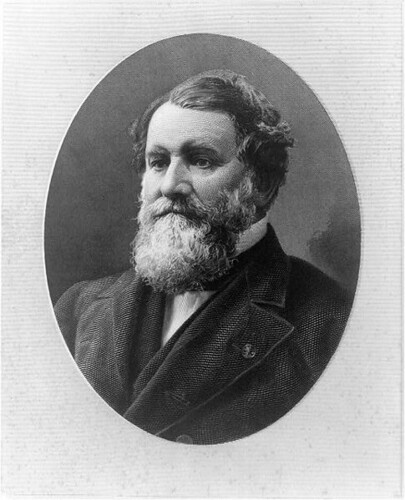
Cyrus McCormick is credited with inventing the reaping machine.
The story begins with Cyrus McCormick's Grandfather Robert, who settled near the Augusta County border with Rockbridge County in 1779. The property was the site of sawmill, a cider mill, a distillery, two grain mills, and a smokehouse. The elder Robert had a son, also Robert, who was the father of the famous Cyrus who was born in 1809.
Around 1815 Robert McCormick began tinkering with the idea for a mechanized harvester. Working in the estate's blacksmith shop he came up with a prototype but never got it to a practical machine. Young Cyrus McCormick showed his inventive streak at age 24 when he perfected a lightweight cradle for harvesting grain.
By the time of the 1831 harvest, Robert had given up on his harvester and put it aside. Then young Cyrus picked up the project. Burning the midnight oil he worked feverishly on his father's concept and produced a working harvester in a mere six week period. In 1831 he was able to demonstrate his machine and it was patented in 1834. The original machines were produced in the blacksmith shop at Walnut Grove but demand soon outpaced the little shop's ability to produce reapers. Cyrus proved to be a strong businessman as well as an inventor and he moved the whole operation to Chicago in 1847. At the 1851 London World's Fair the reaper was shown and won the Gold Medal at the Crystal Palace Exhibition.
Cyrus McCormick's name was now known around the world. The International Harvester Company revolutionized agriculture. Fewer workers could harvest more crops in a timely manner and modern agriculture was born. In 1831 about 90% of the population was involved in farming. Today fewer than 2% produce food for the entire population.
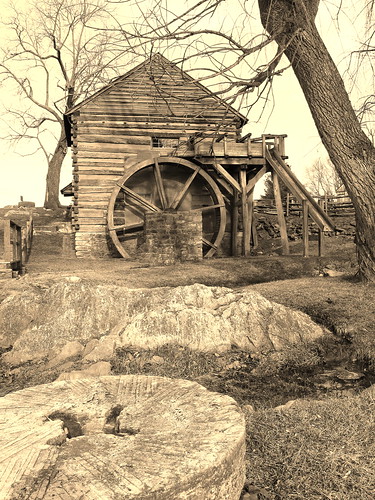
The McCormick Family Mill at Walnut Grove.
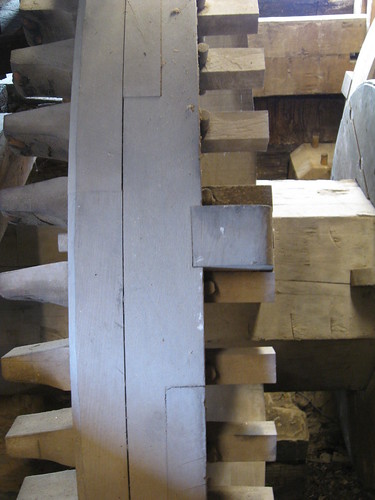
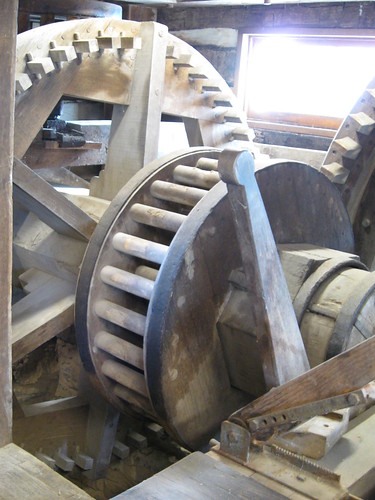
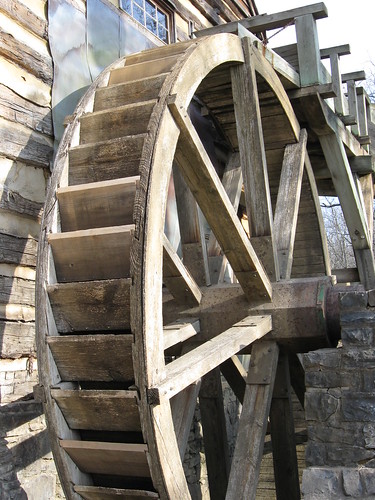

Mill Machinery photos by Bob Kirchman.




No comments:
Post a Comment